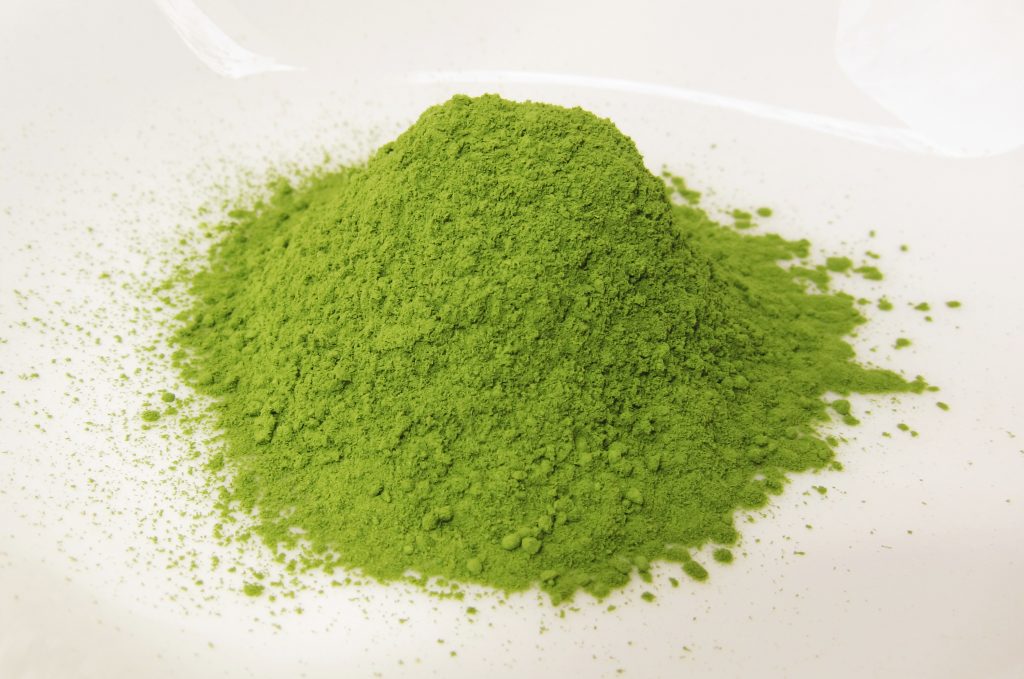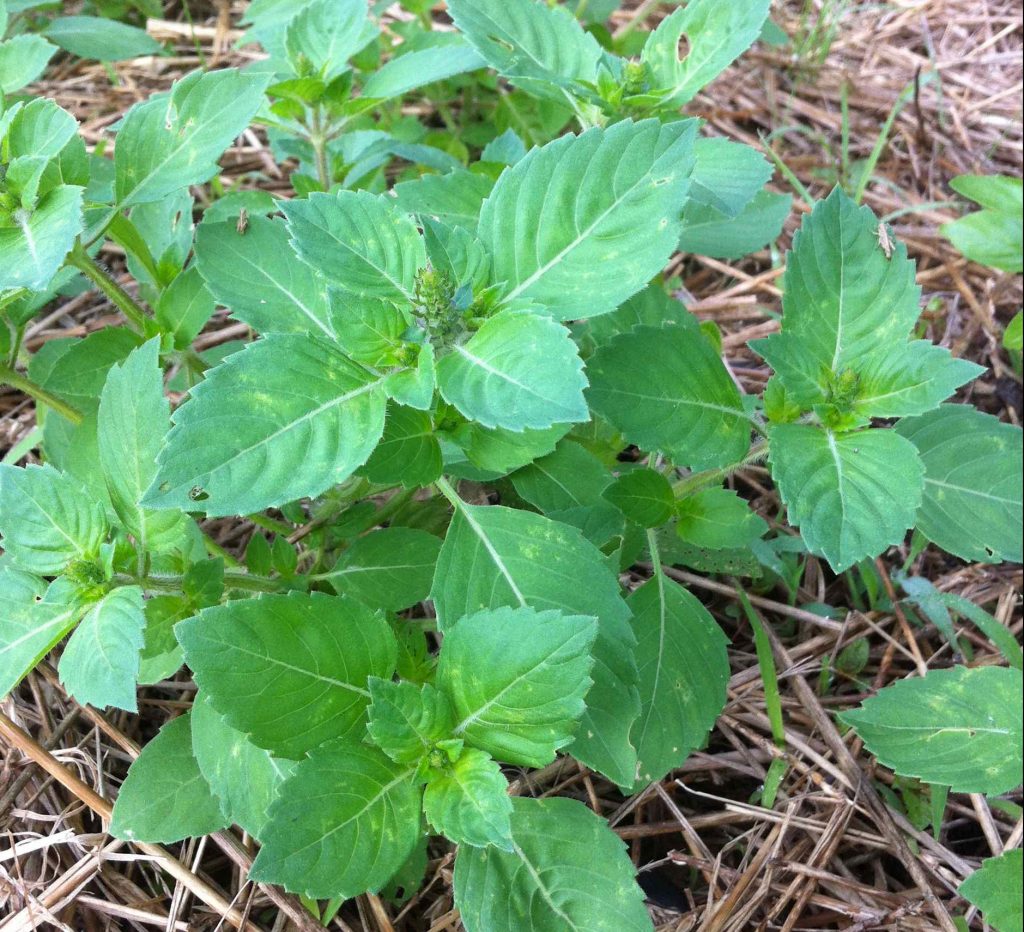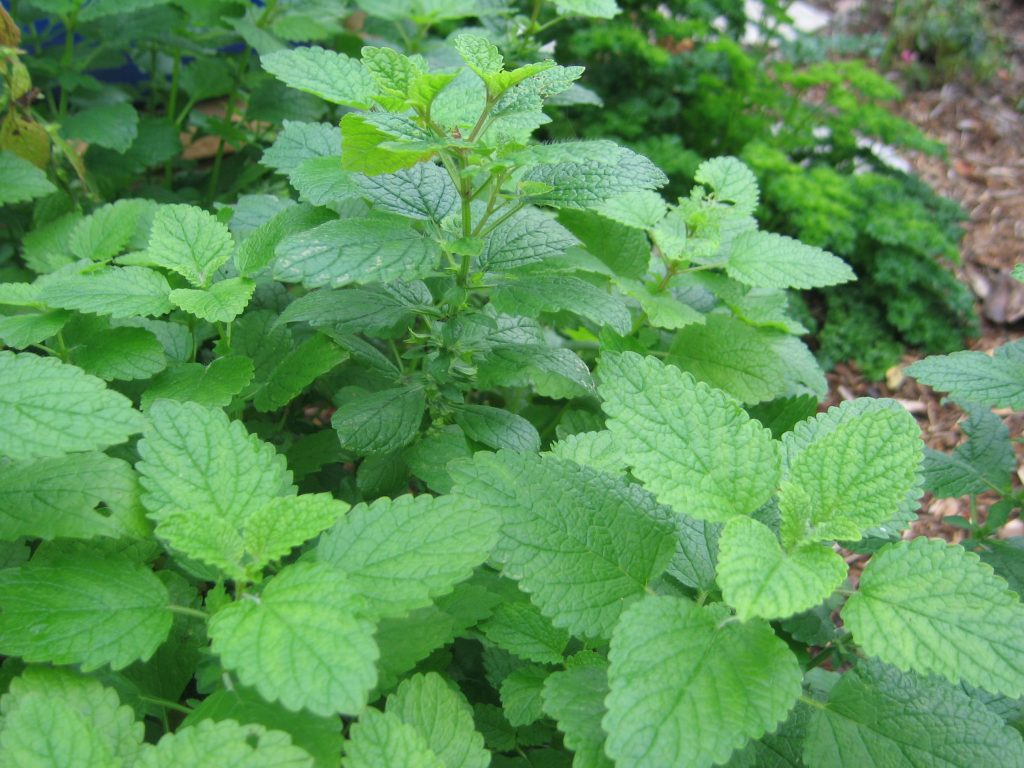Matcha Green Tea
This is my favourite airport drink (I fly a lot). One sip of a green tea latté with soy milk and my whole system experiences a relaxed alertness. A long satisfying exhale.
Matcha is made from green tea leaves that have been stoneground into a fine powder. One of the plant chemicals found in matcha is epigallocatechin 3-0-gallate (EGCG), an anti-oxidant that helps to protect the kidneys and liver from free radicals.[i] Research on mice support the ability of matcha to help the body excrete toxic chemicals such as PCBs.[ii]
The concentration of EGCG obtained from drinking matcha is 137 times higher than some other green teas. Thus one serving of matcha is equivalent to at least 10 cups of steeped green tea.[iii] Why wouldn’t you opt for the real deal?
Matcha contains over 10 times more antioxidants than pomegranates or blueberries. It even beats goji berries as the antioxidant giant. Antioxidants slow down the aging process and help to prevent and reverse disease.
Studies on mice have revealed that matcha: 1) lowered cholesterol and triglycerides; 2) lowered blood glucose levels; 3) improved liver detoxification by increasing something called superoxide dismutase; 4) reversed damage caused by free radicals.[iv]
Matcha’s protective antioxidants, support for the liver and kidneys and glucose-lowering capacity make it an excellent beverage to have regularly to reduce breast cancer risk. It contains a little caffeine – have it in the morning rather than before bed.
Holy Basil (Ocimum gratissimum)
Holy basil is recognized by Hindu people in India as a sacred plant and is planted around holy shrines. Its Hindu name, Tulsi, means “the incomparable one”. It has many uses – for treating the common cold, flu, diabetes, bronchitis, earache, headache, fever, and to relieve stress and anxiety, support the adrenal glands and promote longevity.
Laboratory research on Holy basil confirms that it slows down breast cancer growth and progression.[v] It helps prevent breast cancer cells from invading neighbouring tissues, and reduces the blood supply to tumours, stalling their growth.[vi] Three of the protective plant chemicals in Holy Basil are lutein, lupeol and eugenol.[vii] Holy basil also improves immune function by increasing T helper cells and T killer cells.[viii]
Holy basil makes a delicious tea, steeped on its own or with added licorice root. I find it immediately soothing and relaxing.
Lemon Balm
Lemon balm is calming and relaxing. Historically is has been used to relieve nervous agitation, restlessness, irritability, insomnia, and menstrual or intestinal cramps. It increases the neurotransmitter, GABA by inhibiting GABA-transaminase, the enzyme responsible breaking down GABA.[ix]
In terms of breast health, lemon balm contains apigenin, which has powerful antioxidant, anti-inflammatory, and anticancer properties[x][xi] to protect our breasts.
Lemon balm acts as an anti-viral against the Herpes simplex virus[xii] and can be applied as a cream to cold sores to shorten their duration, or can be taken as a tea or tincture.
Schedule a date with lemon balm each evening before bed to benefit from its relaxing, sleep-inducing properties.
About the Author:
Sat Dharam Kaur ND is a naturopathic doctor practicing in Owen Sound, Ontario, Canada, and author of the Complete Natural Medicine Guide to Breast Cancer and the Complete Natural Medicine Guide to Women’s Health. She travels internationally, educating women in ways to reduce breast cancer risk using the Healthy Breast Program, and trains other women to teach the program in an effort to decrease the rising global epidemic of breast cancer.
For more information and guidance on breast cancer prevention and/or recovery, see https://mammalive.net/upcoming-courses/.
We invite you to partner with us in educating women in ways to reduce breast cancer risk through our October international #breasthealthchallenge campaign.






